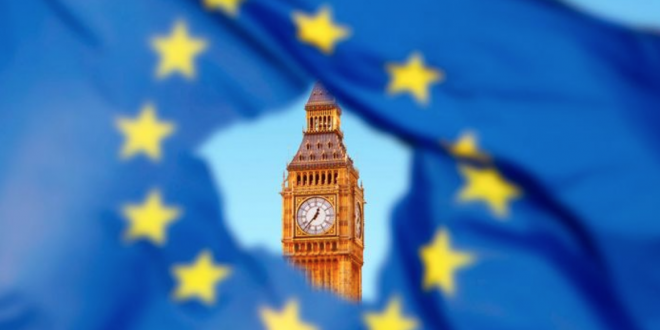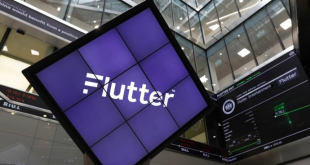
With Brexit factors and implications on the minds of all UK business stakeholders, Matt Harrod, VP of Europe at Processing.com examines whether interchange rates and PSD3 are the least of the gaming/betting industries worries…
___________________
Everyone should probably be aware by now that the UK is due to leave the European Union at 11pm on Friday 29th March 2019, deal or No Deal.
Given the difficulty the Prime Minister is having passing her withdrawal agreement, it is no surprise that she appears on the verge of ruling out a No Deal scenario by extending Article 50 for further negotiations. However, this delay still needs to pass a fractious and divided Parliament, meaning that the prospect of the UK falling off the Brexit cliff-edge is still far too likely for comfort. Even if her agreement passes, it doesn’t explain how the UK and EU’s post-Brexit relationship will look – it is simply a “divorce settlement”.
All of this understandably creates a great deal of uncertainty, particularly for the gaming sector. UK-based online gaming operators don’t know if interchange fees will apply after Brexit – which could potentially increase the cost of digital transactions by up to 100%, significantly affecting their relationship with gamers. They also don’t know whether they need to plan for new EU legislation, such as the upcoming Third Payment Services Directive (PSD3), with new requirements for cashless and online payments that may increase the compliance burden on gaming operators.
Whatever the final shape of Brexit, there are changes that we know will occur to the regulatory and commercial landscape that will have major implications for the gaming sector, and they may even put interchange and PSD3 concerns into the shade. Failure to take these into account may mean that operators are unprepared for the years ahead, potentially impacting on their future revenue and profitability.
Ramifications for gaming licences
From a licensing point of view, gaming operators operating in the UK have some insulation from the impact of Brexit – regardless of its final shape.
Whether they are based in the UK or overseas, gaming businesses are already required to have a specific UK Gambling Commission (UKGC) licence if they want to provide gaming services in mainland Britain. This is the principal reason why we have not yet seen a major exodus of EU-based operators leaving the UK market – they already have the required credentials to continue providing gaming in the country.
In the event of a No Deal, though, British gaming licences will no longer be recognised, meaning that UK-based gaming operators will not be able to trade in the EU – either serving European customers or British customers trying to access their accounts from overseas – unless they have certification from an “rEU” member state.
With this in mind, UK operators will need to ensure they have the appropriate licences if they want to continue to access the European market in the future. This means that they will have to ensure that their business adheres not just to UK legislation but to diverging EU regulations – something that can be very expensive for individual companies, with repercussions for their profits.
Consequences for payments
Gaming licences are not the only issue that operators need to bear in mind when preparing for Brexit. The banking and payments landscape that operators work in within the UK stands to change substantially not just in the event of a No Deal, but even under the Prime Minister’s withdrawal agreement. This can have implications for the acquiring banks and payment providers that operators partner with for commerce inside the UK and for cross-border commerce.
To explain, let’s look at the financial services scene in Switzerland. As part of the European Economic Area (EEA), Switzerland is not subject to EU payments regulations, such as PSD2 – instead, it has its own laws in this area. For many acquirers, the complexity of having to comply with both the EU’s regulatory framework and Switzerland’s is too onerous, so they choose not to operate in the Alpine country.
As a consequence, digital merchants – including EU and Swiss-based gaming operators – looking to trade in the EU and in the EEA must have an EU acquirer and payment providers, as well as additional partners capable of operating within Switzerland and other EEA member states. Moreover, they must give careful consideration to whether their banking and payment partners for each jurisdiction are capable of offering cross-border transactions, so that they can continue to attract gamers while they are travelling abroad.
I think this provides a good illustration of how the payments landscape will change for the UK gaming sector. Whether we leave with Theresa May’s deal or not, the UK will be outside the EEA – as such, the country will no longer be subject to EU banking and payments regulation, or to any agreements made with the EEA.
This means it is highly likely we will see EU and overseas acquirers becoming as reluctant to operate in the UK as they are in Switzerland – as a result, UK-based gaming operators will potentially need to have banking and payments partners for their domestic business, and partners for their EU business as well. Having multiple partners for different markets will have a significant impact on operating costs, and will obviously be a drain on team members’ precious time.
With this in mind, I think we will see many smaller gaming operators in the UK scaling back or withdrawing their EU business – and the same for EU companies serving players in Britain – as they seek to maintain profit margins in light of the increased expenses. If they want to avoid this fate, gaming operators – large and small – should work closely with their payments experts now to identify what they need to do to continue operating across all of their European markets.
Time to act
With the uncertainty surrounding the UK’s future economic relationship with its largest trading partner, the EU, it is no surprise that there is considerable panic setting in among gaming operators and businesses in other sectors. It is hard for businesses to plan when the Government cannot confirm what the future licensing, banking and gaming landscape will look like.
However, there are developments that are indicating the country’s future direction, and can give gaming operators the insight they need to ensure they have the plans and partnerships in place to face the future. Talking to payments experts about these developments now, gaming operators can ensure they have the information and advice they need to Brexit-proof their businesses and make sure they are able to continue to provide customers across Europe with a great gaming experience well into the future.
__________________
Matt Harrod – VP of Europe – Processing.com










